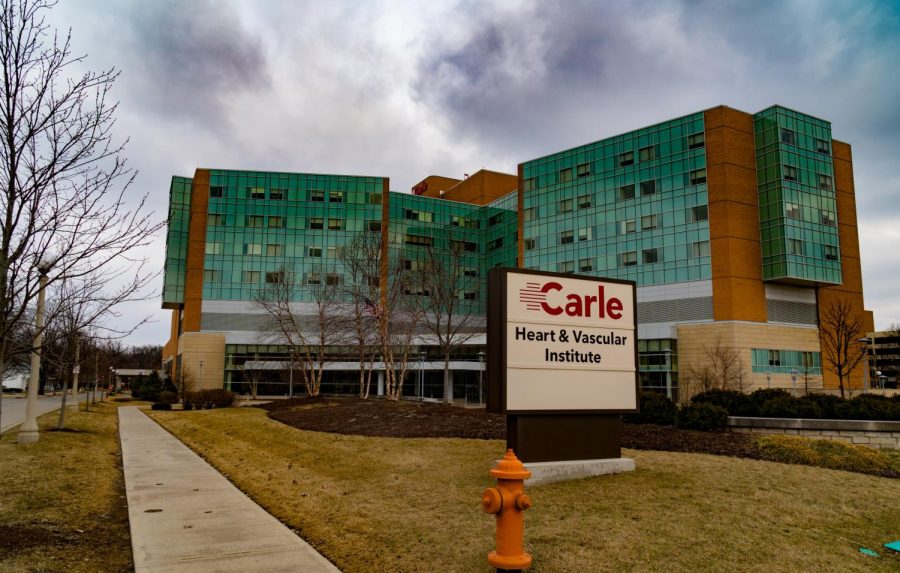Law changes guidelines for evidence kits
Carle Foundation Hospital on March 2, 2019. Carle has made new screening tools available for patients concerned about coronavirus.
Mar 14, 2019
A law was signed earlier this year that offers legal protection and provides sexual assault survivors with evidence kits that are to be kept for 10 years, access to showers and police reports at no cost.
Previously, if a patient was not ready to make a police report and release the kit, the kits were held at the hospital for up to two weeks.
Tegan Stynoski, sexual assault and domestic violence program coordinator at Carle Foundation Hospital, said a sexual assault evidence kit includes a thorough medical exam to assess for injury, risk of infection and pregnancy.
The hospital also provides medications for STD prevention and pregnancy. In addition, evidence such as hair combings, cotton swabs and fingernail scrapings are also collected depending on what is pertinent to the assault. The new legislation for 2019 requires hospitals in Illinois to provide photographic documentation of patient injury.
“These photos are the only pieces of the evidence collection that do not go to police. Due to their sensitive nature, they are securely stored at the hospital until a judge issues a subpoena for them to be released for court purposes,” Stynoski said.
Get The Daily Illini in your inbox!
All the kits go to law enforcement and the hospital keeps records of all confidential reports. Patients have the option to either report the assault to the police right away, have a healthcare provider give the details to the police or not report the case at all.
Sometimes survivors hesitate to report their assault because they are afraid of whether or not they will be prosecuted for any illegal substances in their system at the time of their assault.
The new law offers legal protection against prosecution for other illegal substances used at the time of the assault.
“A statement of the higher education institution’s obligation to include an amnesty provision that provides immunity to any student who reports, in good faith … so that the reporting student will not receive a disciplinary sanction by the institution for a student conduct violation, such as underage drinking or possession or use of a controlled substance, that is revealed in the course of such a report,” the law states.
The law also requires hospitals to provide an evidence kit, commonly referred to as a “rape kit,” and are required to keep this kit for up to 10 years so the patient may turn the evidence in to law enforcement when they wish.
According to the Illinois Attorney General, specially-trained nurses are able to reduce re-traumatization of patients and improve the quality of forensic evidence collection, which in turn increases prosecution rates of offenders.
To support and appropriately assist survivors with such specially trained nurses, the Illinois Attorney General’s office developed the Illinois Sexual Assault Nurse Examiner program.
“The role of SANE is to perform a physical as well as forensic exam, provide appropriate medications with the supervision of a physician, and ensure written and verbal information on the care provided and the follow-up the patient will need,” according to the Carle Foundation Hospital website.
Stynoski said SANE nurses have extensive training in classrooms and clinical experience over the course of a year by spending time practicing anogenital assessments, learning about the role of advocates, law enforcement and prosecutors and assisting with sexual assault exams.
“They are highly trained in providing sensitive and compassionate care to survivors of sexual violence,” Stynoski said. “They are also experts in assessing genital anatomy and differentiating between normal variation and injury, as well as evaluating and documenting injuries.”
Carle Foundation Hospital has already been providing many of the new requirements of the law such as photography and 24/7 availability of SANE nurses all year round.
“We are working on contracts with area hospitals to formalize how and when patients should be transferred to Carle for medical and forensic services, as well as drafting a formal area-wide treatment plan that shows how the hospitals will work together to provide high-quality care to survivors of sexual assault,” Stynoski said.






